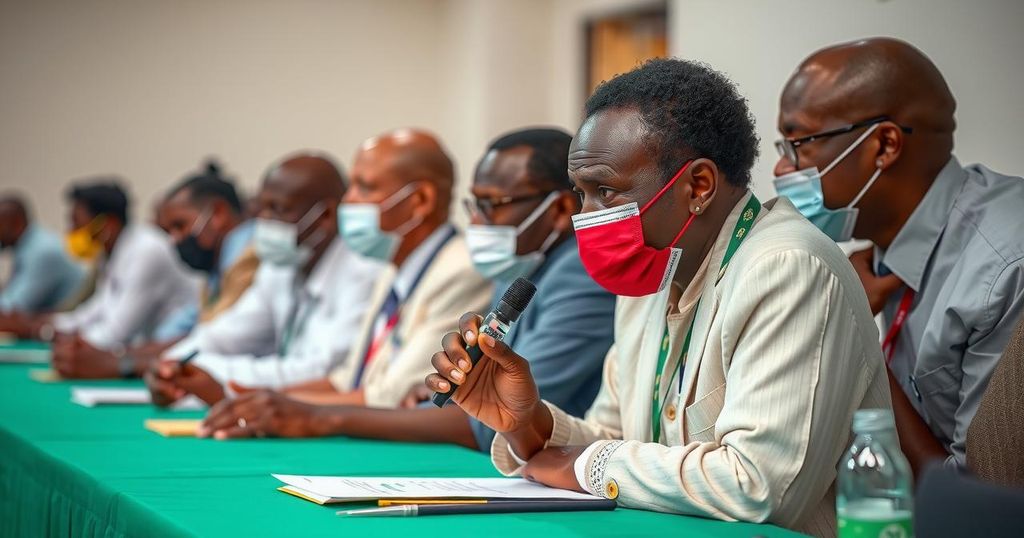Nigeria to Host Regional Summit for Lassa Fever Vaccine Development

Nigeria will host a regional meeting on January 15, 2024, for Lassa fever vaccine development, led by Professor Muhammad Pate, emphasizing collaboration across West Africa. The summit comes in response to significant health challenges, with nearly 10,000 suspected Lassa fever cases reported, underlining the urgency for effective public health strategies. Professor Pate advocates for interconnected government efforts to enhance health and social welfare outcomes.
On January 15, Nigeria is set to convene a regional meeting dedicated to the development of a vaccine for Lassa fever, as confirmed by the Coordinating Minister of Health and Social Welfare, Professor Muhammad Pate. This initiative positions Nigeria at the forefront of efforts to combat Lassa fever, which is endemic in the country and poses a critical public health threat across all states. Professor Pate emphasized that the summit would facilitate collaborative research among West African nations aimed at ultimately introducing an effective vaccine to curb the spread of this viral disease.
As of the end of 2024, Nigeria registered almost 10,000 suspected Lassa fever cases, with over 1,187 confirmed infections and 191 fatalities across 28 states. Recognizing the urgency of the situation, the Nigeria Centre for Disease Control and Prevention had established an Emergency Operations Centre to manage the outbreak during this peak season. Lassa fever, caused by the Lassa virus primarily spread by the multimammate rat, presents significant challenges to the nation’s health infrastructure.
Professor Pate highlighted the importance of cooperative governance in enhancing health outcomes, asserting that successful public health strategies involve collective efforts from all levels of government, communities, and individuals. He outlined initiatives designed to foster accountability and collaboration among governmental agencies, shedding light on the imperative of integrating health initiatives with other sectors such as education and environmental management. According to him, addressing health disparities requires a multifaceted approach where education and environmental conditions are recognized as crucial influencers.
Moreover, he pointed out that security challenges impede vaccination campaigns in several regions, emphasizing the need for cross-sector collaboration involving defense and military sectors to safely administer health services. He reiterated, “We are not building a health system just for itself. We are building a system that will serve the people and improve their health and well-being.”
On the topic of social welfare, Professor Pate argued that health systems are critical components of broader social protections. He articulated that vulnerability to ill health can significantly impact families and push them into poverty, stressing the necessity for government initiatives to support financial protection against healthcare costs. He also advocated for the establishment of a catastrophic health insurance fund to safeguard the economically disadvantaged from being further burdened by healthcare expenditures.
In conclusion, Nigeria’s leadership in Lassa fever vaccine development underscores the critical need for a concerted regional effort to combat this endemic disease. The minister’s remarks reflect a holistic understanding of health as interlinked with education, security, and social welfare, advocating for an integrated strategy to improve both health outcomes and overall quality of life for the Nigerian populace.
Lassa fever, an acute viral hemorrhagic fever caused by the Lassa virus primarily transmitted through contact with infected rodents, remains a persistent public health concern in Nigeria. The country has experienced significant morbidity and mortality due to this virus, leading to the establishment of health initiatives aimed at controlling its spread. The upcoming regional summit reflects Nigeria’s commitment to combatting infectious diseases through international collaboration and vaccine development, which is essential given the high incidence rates reported annually.
The forthcoming Lassa fever vaccine development summit marks a significant advancement in Nigeria’s public health strategy to mitigate the effects of Lassa fever in the West African region. Professor Pate’s insights emphasize a multifaceted approach to health that integrates education, security, and social welfare, underscoring the importance of collective action in addressing public health challenges. Such a comprehensive framework is vital for ensuring healthier communities and preventing the economic repercussions of health-related issues.
Original Source: punchng.com







